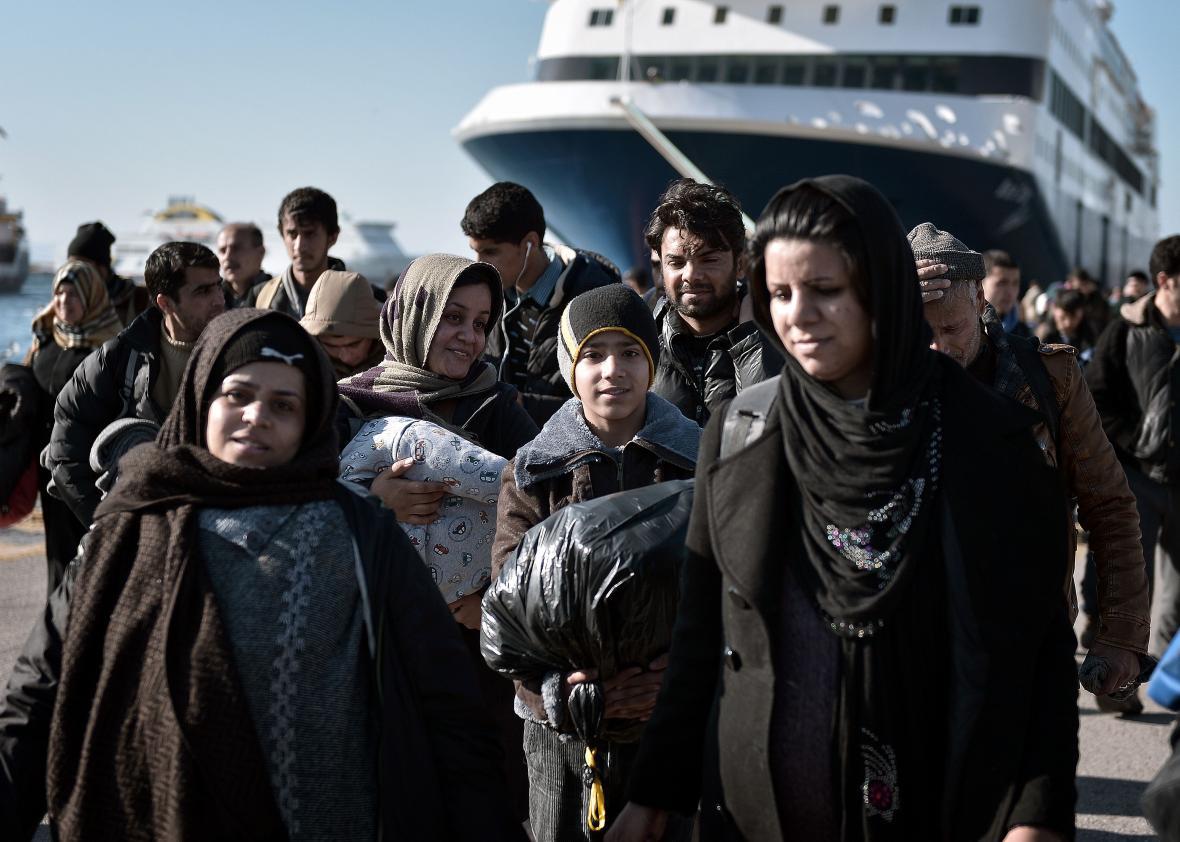Last summer, Greece narrowly avoided being kicked out of the eurozone after reaching a bailout deal with its European creditors, ending months of crisis and brinkmanship. But that saga may just have been a prelude to the latest showdown between Greece and Europe, one with much more serious humanitarian consequences and no obvious solution.
The European Commission last week warned Greece that unless it institutes a reliable system to check the identities of all new arrivals (i.e. refugees) and sets up shelter for at least 50,000 people by May, it could be suspended from the EU’s passport-free travel area, the Schengen zone. This is significant: If Greeks lost the ability to travel passport-free throughout the EU, it would deepen the country’s isolation from the rest of Europe and deal a further blow to the country’s already devastated economy.
Thanks to the country’s location, the vast majority of refugees entering Europe in the current crisis—50,668 out of 54,500 so far this year—come through Greece. The flow of people has continued unabated despite winter weather making the crossing from Turkey more dangerous, as shown by the drowning of 40 people, including 10 children on Saturday—an event met mainly with shrugs in European capitals where compassion has run low as the crisis has worn on. Warming weather in the spring is likely to only bring more arrivals.
While nearly all of the refugees and some economic migrants who enter Greece are hoping to head north toward countries like Germany and Sweden, the country where they enter is responsible for processing them. The sheer scale of the influx has overwhelmed the economically struggling Greece, and the EU is concerned that many people are making their way through Greece and the Balkans to Europe without being processed. The EU border agency Frontex has deployed more guards and fingerprinting machines to Greece and agreed to give Athens more economic aid to cope with the crisis, but the Greek government says its requests for aid have only been partially met.
Greeks are also concerned that the reimposition of border controls throughout Europe will leave more migrants stranded in the country where they arrive. Austria and Germany, for instance, have been turning away hundreds of migrants found to be lying about their nationalities and border controls have been going up throughout the Balkans, pushing people back toward Greece. There’s now growing pressure to seal Greece’s border with Macedonia, which as one expert put it, would effectively “turn Greece into a de facto refugee camp.”
While European countries agreed last September to distribute 160,000 refugees throughout the union’s 26 members, only about 150 have been relocated under the program so far. While there have undoubtedly been some failures by the Greek authorities in this crisis, given Europe’s complete inability to craft a united response, you can hardly put most of the blame on Greece—an ill-equipped nation that’s in this position mostly thanks to geography.
Read more of Slate’s coverage of the European migrant crisis.
